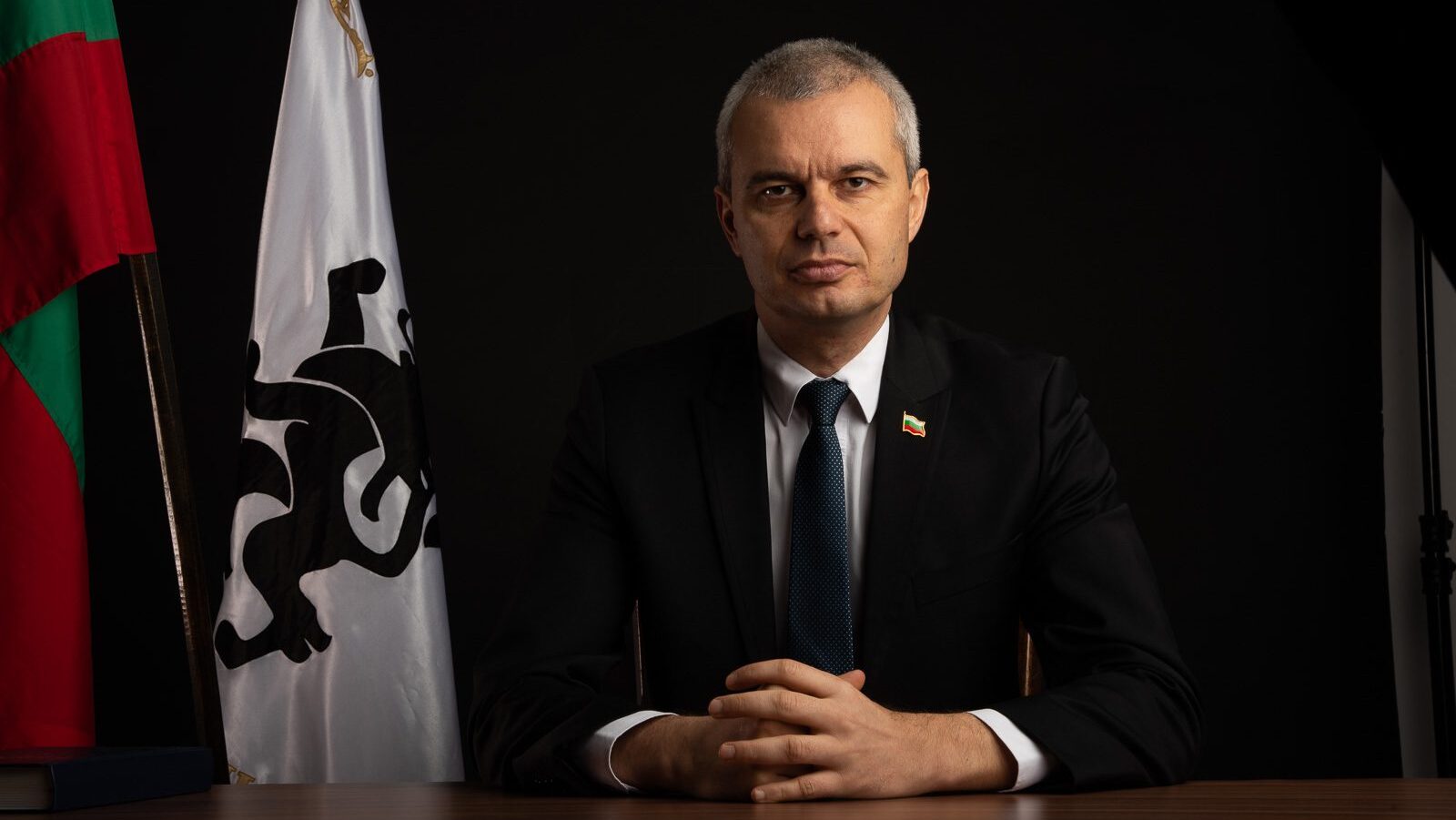
Kostadin Kostadinov
Photo: Kostadin Kostadinov on Facebook, 5 February, 2023.
Despite the German Alternative für Deutschland (AfD) having been thrown out of its parliamentary group in Brussels, the party is not without allies.
Kostadin Kostadinov, leader of the Bulgarian right-wing populist party Vazrazhdane (“Revival”) has extended an offer to team up with AfD after the election in a bid to create an eighth group in the European Parliament. Such a formation would be the third national conservative bloc, the furthest to the right on Brussels’ political palette.
According to Kostadinov’s social media post, AfD’s exclusion from the Identity and Democracy (ID) group did not come as a surprise and he was expecting it for a long time.
However, this is very good news because we will now have the opportunity to create a real conservative and sovereigntist group in the European Parliament.
The Bulgarian party leader also revealed that “steps” have been taken already to establish the new group, officially inviting the AfD to join the process.
“We will not allow the current ruling liberal-fascist regime [of the EU] to continue,” Kostadinov wrote. “Our German friends can count on us, as can all other European political forces who think like us.”
‼️Костадин Костадинов: Възраждане категорично ще работи заедно с „Алтернатива за Германия“‼️#Възраждане #КостадинКостадинов #AfDhttps://t.co/8jLs4w3uT0 pic.twitter.com/twoLXDbrkG
— Възраждане (@vazrazhdane) May 26, 2024
As we wrote before, AfD’s only chance for avoiding losing the resources and representation that come with a group membership is to create a bloc of its own, together with other up-and-coming right-wing populist factions that so far didn’t or couldn’t find a place for themselves.
Establishing a new parliamentary group is not easy but not impossible either. Any new formation would have to include at least 23 MEPs representing at least 7 member states. With AfD easily contributing 16-17 seats alone, the project does have a chance of becoming a reality.
But who would be the others? For one, Revival is polling at second place with 15% and is expecting to get 3 seats in Brussels. The Hungarian Our Homeland Movement (MHM), which has a close relationship with both, might also contribute one or two seats, and so does the Polish Konfederacja. Thierry Baudet’s Dutch Forum for Democracy (FvD) is also part of the same informal alliance, but it’s unlikely to get a single seat in the Parliament this year.
Leaders of the Revival, MHM, and FvD (along with the Czech ID-member SPD and the Swedish ECR-member Sweden Democrats) even met last year in Budapest to sign a declaration of cooperation and friendship, titled “For a Free Europe of Nations.”
Then there are parties that currently sit or have been sitting in leftist groups but might be forced to reconsider their place among Brussels’ sovereigntist parties. These include PM Robert Fico’s Slovakian SMER, which was thrown out of the social democrat S&D group last year; as well as the former Czech PM Andrej Babiš’s ANO, which is rapidly falling out with its current allies in the liberal Renew group for the same reason.
But the real question is not whether it is possible, but whether AfD would want it. Sources told The European Conservative that the MEP who caused AfD’s suspension from ID in the first place, Maximilian Krah, and his faction have always been trying to quit the French-dominated group to establish another that AfD would lead unchallenged instead. However, the majority of the party’s leadership did everything it could to distance themselves from Krah and stay in ID, which means they might try to renegotiate their membership in the group after the election.
This is also what a senior AfD official hinted at when talking to The European Conservative after simply dismissing the Bulgarian offer.
Under the condition of anonymity, the Brussels official explained that AfD does not need tiny parties like Revival. “It is the Bulgarians who need urgent help from AfD in the campaign, they only do this to make themselves interesting.”
Instead of thinking about new groups, the plan is to “shut up and wait,” he said. “We don’t need more conflict and escalation, so that every member of the ID group will have the best results possible.”
“Then, on Monday morning [of June 10th], we’ll sit down and see where we are in terms of numbers. The goal is to have a blocking minority [between ECR and ID]; that requires at least 125 MEPs,” he said, adding that AfD’s large number of seats—more than Lega’s and Fidesz’s combined—cannot be ignored by the ID.
“In the end, mathematics plays a role.”
